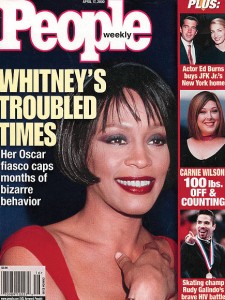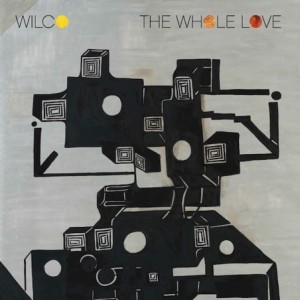The opening synth squeaks and electronic handclaps of “We Take Care of Our Own,” the kick-off single from Bruce Springsteen‘s Wrecking Ball album, makes me wonder if Bruce and His E Street Band have been hi-jacked by Modern English. The mix further ups the play for a “contemporary” sound with tepid use of early ’90s-style vocal echo gently nudging along The Boss’ opening lines. Springsteen and His occasional repetitive synth riff songs (eg, “Born in the USA”) are strange birds in the catalog, but the repetition allows the “visionary” furor of His lyrics a chance to develop into something admirable—if you can get through the bombast of the songs’ opening minutes. I feel that’s the case with the new single.
So much about the song’s arrangement screams OUT OF TOUCH, but you know what? Ever since I saw the song performed at the start of the GRAMMYS, minus some of the cheesy studio trimmings and plus all the spirit provided by a brigade of trim, exuberant, middle-aged musicians I forgave the song’s sins; I forgave Springsteen’s never-ending efforts at encompassing humanity’s slim, profound hope in the face of epic struggle. In fact, as I find myself doing once a decade or so with Springsteen and as I did that night watching the opening of the GRAMMYS, I embraced his never-ending quest of painting humanity in an admirable light. Someone’s gotta do the job he does. It’s worthy work in a world full of shallow, hateful ploys for notoriety—and you can tap your foot to it.
Modern-day Springsteen records and TV appearances make me want to get in shape: exercise, eat healthy, buy some new jeans. They make me feel like sending the kids off to my parents’ house so I can get in some quality time with the wife. They make me want to do something useful for society, like hammer some nails into studs or whatever at a Habitat for Humanity site. When the E Street Band backs up Bruce’s “whoas” on “Wrecking Ball” with their own exhortations I want to go on Facebook and look up that girl from North Jersey I had a crush on freshman year. But what are the odds I’d find her? She had a common Anglo name, and beside, she’s probably married now.
After a run of disposable John Mellencamp hoedown-style songs involving, I believe, musicians from The Seger Sessions and more recently outdated ’90s touches like samples of “authentic” African American field hollers and whatnot, a song called “Land of Hope and Dreams” caught my ear. It features, I presume, one of Clarence Clemons‘ last recorded sax solos, which I found surprisingly moving. The album’s Rock ‘n Roll Iwo Jima moment coalesces on this song, with the band’s stately, manly majesty; the folksy stringed instruments of add-on E Streeters; and an implied robed choir leaning in toward their gritty leader. At times like this Bruce should run for President.
Then, just as I’m ready to pull the lever and vote Boss the album closes with “We Are Alive.” The cornball optimism, unanimity, and sense of purpose go overboard as a twangy Hollywood Western movie guitar-and-whistling intro kicks in. Springsteen’s sense of “we” has expanded well beyond the romantic, personal or tribal notion of the word in his earlier works. I rarely felt part of his original “we,” but I knew who they were. When he sang in the first person plural—”baby we were born to run”—”we” referred to the song’s narrator and his girl, or the narrator and his social scene or community, any extension of his hometown. Over the years Springsteen’s community, or perhaps perceived constituency, has grown to encompass the entire United States. The fact that Bruce tries to bring all of us, all of our concerns and hopes and dreams under one big tent is often admirable, sometimes inspiring, but ultimately suffocating. It’s one thing to find myself standing next to a Candy or a Spanish Johnny now and then, but quite another to be standing shoulder-to-shoulder with the hard-bitten, anonymous masses waiting for deliverance from the Ballad of Tom Joad set with an encore of “Rosalita.”



